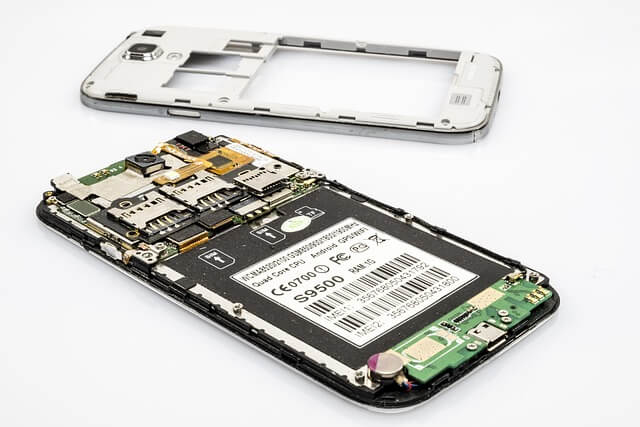Electronics Repair Technicians

Introduction to Electronics Repair Tools
Repairing electronics requires precision and accuracy, making the right tools essential for success. Whether you’re fixing phones, laptops, or home appliances, having reliable and appropriate tools can significantly enhance efficiency and accuracy. Basic tools include:
- Precision Screwdrivers: Essential for handling small screws in delicate devices.
- Soldering Iron: Used for connecting wires and components on circuit boards.
- Multimeter: Helps diagnose electrical issues by measuring voltage, current, and resistance.
- Tweezers & Spudgers: Ideal for manipulating small components during repairs.
Explore guides and recommendations to learn more about essential repair tools.
Can you earn money making Repairing Electronics?
Yes, you can earn money repairing electronics, and here’s how:
- Freelance Repairs: Offer your services directly to consumers for devices like phones, computers, and gaming consoles.
- Local Shops: Many small businesses specialize in electronics repair; you can work for them or partner with them.
- Specialized Repairs: Focus on specific items like smartphones or laptops to attract more clients.
- Corporate Clients: Businesses often need bulk repairs for their office electronics.
Offering competitive pricing and building a good reputation for quality service can help maximize your earnings.
Are there any other professions/hobbies that could be leveraged for Electronics Repair?
Yes, several professions and hobbies can complement electronics repair:
- Computer Science/IT: Knowledge in IT or computer science can help with diagnosing and repairing electronic systems.
- Engineering: Electrical or mechanical engineering skills can aid in understanding complex circuits and components.
- Hobbyist Tinkering: DIY electronics enthusiasts often have skills that transfer well into professional repair work.
- Programming: For advanced devices, programming and firmware updates are sometimes necessary.
- Soldering/Assembly: Experience in soldering and electronic assembly is a valuable skill for fixing circuit boards and hardware components.
Is it expensive to get started in Electronics Repair?
Starting in electronics repair doesn’t have to be overly expensive, but costs can vary depending on the scope of work you plan to undertake. Here’s a rough estimate for a beginner toolkit:
- Basic Tools (screwdrivers, pliers, wire cutters): $30 – $100
- Multimeter: $20 – $100
- Soldering Kit: $30 – $80
- ESD-Safe Tools (anti-static wrist strap, mat): $20 – $50
- Repair Manuals & Software: Varies, some free, others subscription-based
- Diagnostic Equipment (for more advanced repairs): $200+
A basic setup could cost around $150-$300, but advanced equipment may raise this significantly.
Essential Tools for Electronics Repair
Essential tools for electronics repair focus on precision and functionality for working with delicate components:
- Precision Screwdriver Set: For removing small screws in electronics like phones and laptops.
- Multimeter: Essential for testing and diagnosing electrical components.
- Soldering Iron: Used for attaching or removing components on circuit boards.
- Desoldering Pump: Handy for removing solder during repairs.
- Wire Strippers and Cutters: For working with wires and cables.
- Tweezers: For handling small parts and components.
- Plastic Pry Tools: Useful for safely opening devices without damaging them.
Are there any safety considerations with Electronics Repair?
There are several important safety considerations for electronics repair, as you’re working with electricity, heat, and potentially hazardous materials. Here are key safety tools and practices:
- ESD (Electrostatic Discharge) Wrist Straps: Protects sensitive components from static electricity.
- Insulated Tools: Prevents electric shock while working on live circuits.
- Fume Extractors: Removes harmful fumes from soldering activities.
- Safety Glasses: Protects eyes from debris or accidental splashes.
- Ventilated Workspace: Ensures proper airflow, especially when working with solder or chemicals.
Always unplug devices and discharge capacitors before working on them to avoid electrical hazards.
Educational Resources for Electronics Repair
Online Resources
- iFixit – Offers detailed step-by-step repair guides for all kinds of electronic devices. Visit iFixit
- Electronics Repair School (YouTube) – Provides video tutorials on various electronics repair tasks, including diagnosing and fixing common issues. Visit Electronics Repair School
- Reddit – Electronics Repair – A community where enthusiasts and professionals share tips, advice, and troubleshooting for electronics repair. Visit Reddit
Book Resources
- “Troubleshooting & Repairing Consumer Electronics Without a Schematic” by Homer L. Davidson – A guide that helps you repair electronics even without schematics. Find on Amazon
- “Electronics For Dummies” by Cathleen Shamieh – Perfect for beginners, breaking down complex electronics repair tasks into simpler steps. Find on Amazon
- “The Art of Electronics” by Paul Horowitz – For those looking for more advanced, technical insights into electronics. Find on Amazon
These resources will help you grow your skills in electronics repair, providing foundational knowledge and expert insights.
Are there Electrical Repair communities or blogs that could be helpful?
Here are a few communities and blogs that can help you grow your skills in electrical repair:
- Electronics Repair School (YouTube) – Offers free tutorials and troubleshooting tips on various electronic devices. Visit here
- All About Circuits – A forum with an active community for professionals and hobbyists discussing electrical repairs. Visit here
- Electronics Stack Exchange – A Q&A community for electrical repair questions and discussions. Visit here
- Reddit – Electronics Repair – A helpful subreddit for troubleshooting and repair tips. Visit here
These communities offer invaluable insights and tips for anyone involved in electronics repair.
Frequently Asked Questions (FAQ)
-
-
Can you make money repairing electronics? Yes, repairing electronics can be a profitable venture. Whether you’re fixing smartphones, computers, or household appliances, there is always demand for affordable repairs. Offering specialized services or targeting high-demand products can further increase your earning potential.
-
Is electronics repair hard to learn? While electronics repair requires technical knowledge, there are many resources and training programs available. Beginners can start with basic repairs and gradually take on more complex jobs as they gain experience.
-
What tools do I need to get started? Essential tools include a multimeter, soldering iron, screwdrivers, tweezers, and a heat gun. Specialized tools like oscilloscopes may be required for advanced repairs.
-
Are there safety concerns with electronics repair? Yes, working with live circuits can be dangerous. Always unplug devices, use anti-static wrist straps, and consider using fume extractors when soldering.
-
Where can I find electronics repair communities? Online forums like All About Circuits, Reddit’s r/ElectronicsRepair, and the Electronics Repair School on YouTube offer advice, support, and tutorials.
-
Ad Notice:
ToolFinder is a site as a free service. We do not charge a fee, and so we have ads on our site to help support development cost and basic time input.
We may also have links on our site to others for products - known as affiliate links - you will Not pay more by utilizing these links, but the merchant would provide ToolFinder a fee for the referral. As an Amazon Associate I earn from qualifying purchases.

